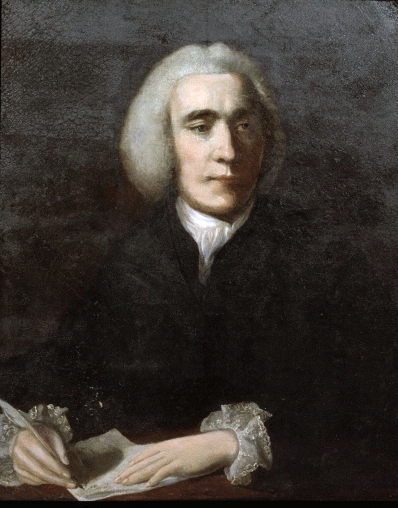Jeremiah Dyson on:
[Wikipedia]
[Google]
[Amazon]
 Jeremiah Dyson (1722 – 16 September 1776) was a British civil servant and politician.
Jeremiah Dyson (1722 – 16 September 1776) was a British civil servant and politician.
 Jeremiah Dyson (1722 – 16 September 1776) was a British civil servant and politician.
Jeremiah Dyson (1722 – 16 September 1776) was a British civil servant and politician.
Biography
He studied at theUniversity of Edinburgh
The University of Edinburgh ( sco, University o Edinburgh, gd, Oilthigh Dhùn Èideann; abbreviated as ''Edin.'' in post-nominals) is a public research university based in Edinburgh, Scotland. Granted a royal charter by King James VI in 15 ...
and matriculated at Leiden University
Leiden University (abbreviated as ''LEI''; nl, Universiteit Leiden) is a Public university, public research university in Leiden, Netherlands. The university was founded as a Protestant university in 1575 by William the Silent, William, Prince o ...
in 1742. He settled a pension on his friend Mark Akenside
Mark Akenside (9 November 1721 – 23 June 1770) was an English poet and physician.
Biography
Akenside was born at Newcastle upon Tyne, England, the son of a butcher. He was slightly lame all his life from a wound he received as a child f ...
, the poet and physician, and later defended Akenside's ''The Pleasures of the Imagination
''The Pleasures of the Imagination'' is a long didactic poem by Mark Akenside, first published in 1744.
The first book defines the powers of imagination and discusses the various kinds of pleasure to be derived from the perception of beauty; the s ...
'' against William Warburton
William Warburton (24 December 16987 June 1779) was an English writer, literary critic and churchman, Bishop of Gloucester from 1759 until his death. He edited editions of the works of his friend Alexander Pope, and of William Shakespeare.
Li ...
. He was a friend of Samuel Richardson
Samuel Richardson (baptised 19 August 1689 – 4 July 1761) was an English writer and printer known for three epistolary novels: ''Pamela; or, Virtue Rewarded'' (1740), '' Clarissa: Or the History of a Young Lady'' (1748) and ''The History of ...
.
He purchased the clerkship of House of Commons
The House of Commons is the name for the elected lower house of the bicameral parliaments of the United Kingdom and Canada. In both of these countries, the Commons holds much more legislative power than the nominally upper house of parliament. ...
in 1748, and became a Tory after George III
George III (George William Frederick; 4 June 173829 January 1820) was King of Great Britain and of Ireland from 25 October 1760 until the union of the two kingdoms on 1 January 1801, after which he was King of the United Kingdom of Great Br ...
's accession. He discontinued the practice of selling the clerkships subordinate to his office. He was Member of Parliament for Yarmouth, Isle of Wight
Yarmouth is a town, port and civil parish in the west of the Isle of Wight, off the south coast of England. The town is named for its location at the mouth of the small Western Yar river. The town grew near the river crossing, originally a ferry ...
1762–8, for Weymouth and Melcombe Regis, 1768–74, and for Horsham
Horsham is a market town on the upper reaches of the River Arun on the fringe of the Weald in West Sussex, England. The town is south south-west of London, north-west of Brighton and north-east of the county town of Chichester. Nearby to ...
, 1774. He was appointed a commissioner for the Board of Trade
The Board of Trade is a British government body concerned with commerce and industry, currently within the Department for International Trade. Its full title is The Lords of the Committee of the Privy Council appointed for the consideration of ...
, 1764–8; a Lord of the Treasury
In the United Kingdom there are at least six Lords Commissioners of His Majesty's Treasury, serving as a commission for the ancient office of Treasurer of the Exchequer. The board consists of the First Lord of the Treasury, the Second Lord of the ...
, 1768–74; and a Privy Counsellor
The Privy Council (PC), officially His Majesty's Most Honourable Privy Council, is a privy council, formal body of advisers to the British monarchy, sovereign of the United Kingdom. Its membership mainly comprises Politics of the United King ...
in 1774.
He supported Lord North
Frederick North, 2nd Earl of Guilford (13 April 17325 August 1792), better known by his courtesy title Lord North, which he used from 1752 to 1790, was 12th Prime Minister of Great Britain from 1770 to 1782. He led Great Britain through most o ...
's treatment of the American colonies. Isaac Barré
Isaac Barré (15 October 1726 – 20 July 1802) was an Anglo-Irish soldier and politician. He earned distinction serving with the British Army during the Seven Years' War and later became a prominent Member of Parliament, where he was a vocal s ...
nicknamed him "Mungo" (the black slave in Isaac Bickerstaffe
Isaac Bickerstaffe or Bickerstaff (26 September 1733 – after 1808) was an Irish playwright and Librettist.
Early life
Isaac John Bickerstaff was born in Dublin, on 26 September 1733, where his father John Bickerstaff held a government posi ...
's ''The Padlock''), for his noted attention to parliamentary business.
References
* 1722 births 1776 deaths Alumni of the University of Edinburgh Members of Parliament for the Isle of Wight British MPs 1761–1768 British MPs 1768–1774 British MPs 1774–1780 Members of the Privy Council of Great Britain Clerks of the House of Commons {{England-GreatBritain-MP-stub